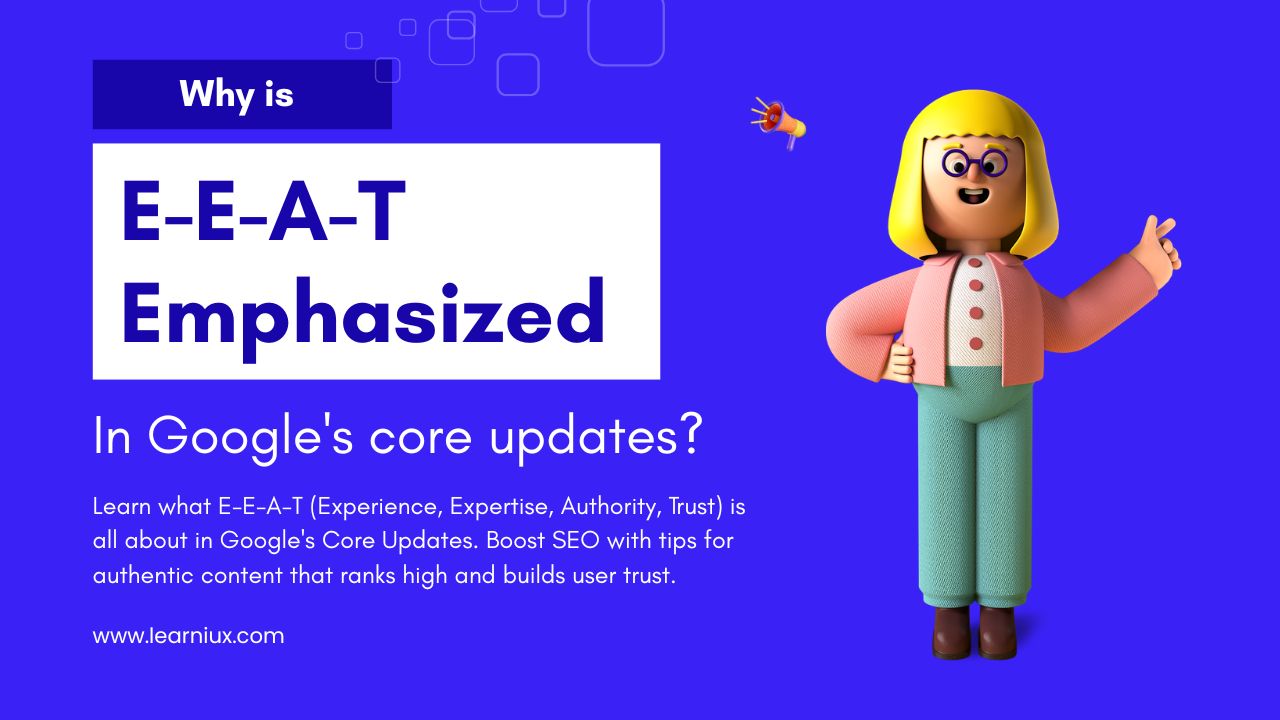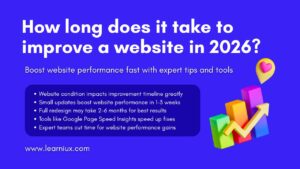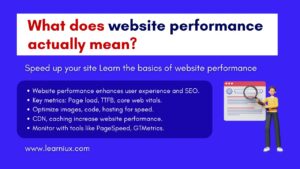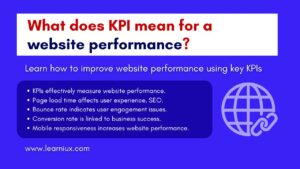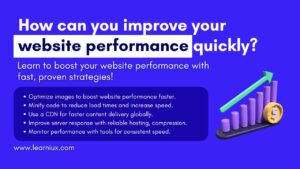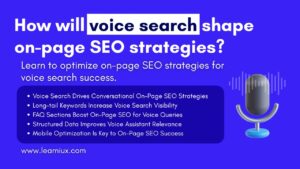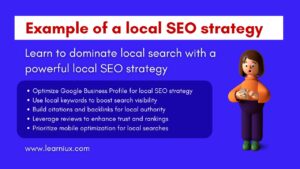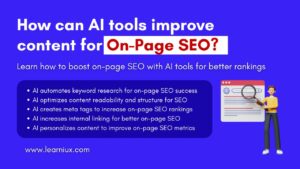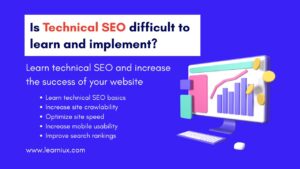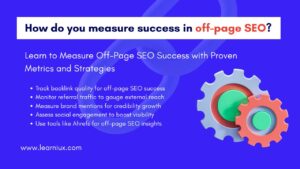Introduction
Search engine optimization (SEO) is a dynamic field that is constantly evolving as search engines refine their algorithms to deliver the best results to users. At the heart of Google’s approach to content ranking is E-E-A-T, an acronym for Experience, Expertise, Authority, and Trustworthiness. This framework serves as a cornerstone for evaluating the quality of online content, influencing how websites perform in search results. With each of Google’s core updates, E-E-A-T becomes increasingly important, shaping the strategies that content creators, marketers, and businesses use to succeed in SEO. This article explores the reasons why E-E-A-T is emphasized in Google’s core updates, its components, its impact on SEO, and actionable ways to optimize for it. By understanding E-E-A-T, you can align your SEO efforts with Google’s goals, ensuring long-term visibility and trustworthiness in search rankings.
E-E-A-T is not just a technical guideline, but a reflection of Google’s commitment to prioritizing high-quality, user-centric content. As search algorithms become more sophisticated, Google’s core updates refine how E-E-A-T is evaluated, making it essential for everyone involved in SEO to understand its importance. Whether you run a blog, an e-commerce platform, or a professional services website, mastering E-E-A-T can help you navigate the intricacies of modern SEO and achieve sustainable success.

What is E-E-A-T
To fully understand why E-E-A-T is central to Google’s core updates, it’s important to break down its four components and understand how they contribute to effective SEO.
Experience in E-E-A-T
The “experience” component of E-E-A-T emphasizes first-hand knowledge or practical involvement in a topic. Google values content created by people who live, work, or are directly involved in that topic. For example, a travel blog written by someone who has researched a destination in depth provides an honest insight that readers will find engaging. In contrast, generic content compiled without personal experience may lack the depth and authenticity that Google’s algorithm prefers. In the context of SEO, showcasing experience means including personal anecdotes, case studies, or practical examples that show your direct connection to the topic.
Google’s core updates increasingly reward content that reflects real-world experience, as it aligns with users’ expectations for authentic, relevant information. For example, a recipe blog written by a home cook who shares their trial-and-error process for perfecting a dish is likely to rank higher than a typical recipe aggregator. By focusing on the experience, you can increase your SEO performance and build a stronger connection with your audience.
Expertise in E-E-A-T
Expertise refers to the depth of knowledge an author or website has in a specific area. This is especially important for YMYL (Your Money or Your Life) topics like health, finance, or legal advice, where misinformation can have serious consequences. Google’s core updates prioritize content written by qualified professionals (think doctors, financial advisors, or legal experts) to ensure users get accurate and reliable advice. For SEO, demonstrating expertise involves creating in-depth, well-researched content backed by credentials, certifications, or industry experience.
For example, a financial blog written by a certified financial planner with years of experience will carry more weight than a generic article written by someone without credentials. To optimize for SEO, include an author bio that highlights qualifications, cites reputable sources, and provides detailed insights that demonstrate your expertise. Regularly updating content to reflect the latest industry trends also signals to Google that your website is a relevant and authoritative resource.
Authority in E-E-A-T
Authority measures how trustworthy a website or author is in their niche. This includes factors like high-quality backlinks from reputable sources, industry recognition, and a consistent track record of creating valuable content. Google’s main updates favor websites that have established themselves as the go-to source in their field, as these sites are considered trustworthy and influential. For example, a tech blog that is cited by major publications like TechCrunch or Wired is likely to rank higher than a lesser-known competitor with fewer authoritative connections.
In the case of SEO, building authority requires strategic efforts like acquiring backlinks from trusted websites, contributing guest posts to established platforms, and interacting with your audience through comments or social media. These actions signal to Google that your website is a respected player in its niche, which increases your ranking in main updates.
Trustworthiness in E-E-A-T
Trustworthiness is the foundation of E-E-A-T and is a key factor in SEO. It includes technical aspects such as website security (HTTPS), transparent authorship, and information accuracy. Google’s Core Updates penalize sites that make misleading claims, have poor user experiences, or lack clear sourcing. To build trust, websites need to provide clear contact information, privacy policies, and verified facts. For example, an e-commerce site with a secure payment gateway and a transparent return policy is more likely to rank better than a site with unclear or questionable practices.
For SEO, trustworthiness also includes avoiding exaggerated claims and ensuring that all content is backed by credible sources. Including an author bio with links to professional profiles or social media accounts further builds trust. By prioritizing trustworthiness, you align with Google’s goal of delivering trusted content, improving your SEO performance in the process.
Why Google Emphasizes E-E-A-T in Core Updates
Google’s Core Updates are designed to improve their algorithms, ensuring that search results match users’ needs and expectations. E-E-A-T plays a central role in these updates for several key reasons, each of which has significant implications for SEO.
Improving User Experience
Google’s main goal is to provide users with the most relevant, valuable, and high-quality content. E-E-A-T ensures that websites prioritize user experience by delivering honest, accurate, and trustworthy content. For example, a health website that offers evidence-based advice from medical professionals is more likely to meet users’ needs than a site with unverified claims. E-E-A-T improves Google’s core algorithm to identify content that aligns with the principles, which improves the overall quality of search results.
From an SEO perspective, focusing on E-E-A-T means creating content that actually helps users. This includes clear navigation, mobile-friendly design, and in-depth answers to users’ questions. By prioritizing user experience, you not only improve your SEO rankings but also build a loyal audience that trusts your brand.
Preventing Misinformation
In an era where misinformation spreads rapidly online, Google’s core updates emphasize E-E-A-T to promote trusted sources. This is especially important for YMYL topics, where misinformation could harm users’ health, finances, or well-being. By prioritizing content that demonstrates experience, expertise, and authority, Google ensures that users are getting reliable information from trusted sources.
For SEO, preventing misinformation means avoiding sensational or misleading content. Instead, focus on creating fact-based, well-researched articles that cite reputable sources. This approach not only aligns with Google’s core updates, but also establishes your website as a trusted resource, which can boost your long-term SEO performance.
Adapting to Changing Search Trends
Search behavior is constantly changing due to new technologies, user preferences, and global events. Google’s Core Updates adapt to these trends by refining how E-E-A-T is evaluated. For example, as users increasingly rely on voice search or mobile devices, Google prioritizes content that is concise, accessible, and aligned with user intent. E-E-A-T ensures that websites remain relevant by effectively addressing informational, navigational, or transactional questions.
For SEO, continuous optimization is essential to stay ahead of search trends. Monitor user behavior, incorporate structured data, and create content that matches the intent behind popular search queries. By aligning with E-E-A-T, you can adapt to Google’s Core Updates and maintain strong rankings.
Supporting Long-Term SEO Success
E-E-A-T is not a quick fix, but a long-term strategy for SEO success. Google’s core updates reward websites that consistently display high-quality content over time. By building a reputation for experience, expertise, authority, and trustworthiness, you create a sustainable foundation for SEO that withstands algorithm changes.
This long-term focus requires patience and consistency. Regularly update old content, look for opportunities to gain authoritative backlinks, and interact with your audience to build trust. These efforts grow over time, positioning your website as a leader in its niche and improving your SEO results.
How to Optimize for E-E-A-T in Google’s Core Updates
Optimizing for E-E-A-T is essential to staying competitive in SEO. Below are actionable strategies to strengthen each element of E-E-A-T and align with Google’s Core Updates.
Showcase real-world experience
To demonstrate experience, incorporate personal or professional insights into your content. Share real-world examples, case studies, or anecdotes that highlight your connection to the topic. For example, a fitness blog might feature a trainer’s personal journey to achieve a specific goal, complete with practical tips and lessons learned. This approach not only boosts SEO, but also makes your content more engaging and relevant.
Additionally, use visuals like photos or videos to showcase your experience. For example, a travel blogger might include images from their trip to add authenticity. By emphasizing experience, you signal to Google’s main search engines that your content is based on real-world knowledge, which can boost your SEO rankings.
Build and demonstrate expertise
To demonstrate expertise, create comprehensive content that delves deep into your topic. Use data, research, and citations from reputable sources to support your claims. For YMYL topics, make sure that writers have relevant qualifications, such as degrees, certifications, or professional experience. Include a detailed author bio that highlights these credentials, ideally linking to a professional profile or portfolio.
For SEO, update your content regularly to reflect the latest industry developments. For example, a tech blog might publish annual reviews of new gadgets, which include expert analysis and comparisons. This signals to Google that your website is a current and trusted source, which improves your rankings in core updates.
Build Authority
Building authority requires establishing your website as a recognized leader in your field. An effective SEO strategy involves acquiring high-quality backlinks from reputable websites. This can be achieved through guest posting, collaborating with industry influencers, or creating shareable content like infographics or research reports.
Interacting with your audience also builds authority. Respond to comments on your blog, participate in industry forums, and maintain an active presence on social media platforms relevant to your niche. These efforts signal to Google’s core updates that your website is a trusted authority, which in turn increases your SEO performance.
Prioritize Credibility
Credibility is important for SEO and requires both technical and content-related efforts. Make sure your website uses HTTPS to provide a secure browsing experience. Display clear contact information, including a physical address or email, and include a transparent privacy policy and terms of service. For e-commerce sites, highlight secure payment options and customer reviews to build trust.
From a content perspective, avoid misleading claims or clickbait headlines. Always back up your information with reliable sources and link to authoritative references when possible. Including an author bio with verifiable credentials further increases credibility, aligns with Google’s core updates, and improves your SEO rankings.
Common Mistakes to Avoid When Doing E-E-A-T
When optimizing for E-E-A-T, it’s easy to make mistakes that undermine your SEO efforts. Here are some pitfalls to avoid.
Ignoring Author Credentials
Failing to highlight the author’s expertise or experience weakens your E-E-A-T signal. Always include a detailed bio that highlights qualifications and links to a professional profile or portfolio. For example, a medical blog should clearly state the author’s medical credentials to establish credibility.
Neglecting website security
Lack of HTTPS or outdated security practices can harm trust. Regularly audit your website for technical issues like broken links or slow load times, which can negatively impact user trust and SEO performance.
Creating Thin Content
Shallow or generic content lacks the depth needed to demonstrate expertise or experience. Avoid publishing short, surface-level articles that fail to provide value. Instead, focus on creating comprehensive, well-researched content that addresses users’ needs and aligns with Google’s core updates.
Neglecting regular updates
Outdated content shows a lack of expertise or relevance. Regularly review and update your content so that it reflects current trends, data, and best practices. This not only improves SEO, but also keeps your audience engaged.
The Future of E-E-A-T in SEO
As Google’s algorithms continue to evolve, E-E-A-T will continue to be an important factor in SEO. Emerging technologies such as AI-powered content creation may challenge how Google evaluates experience and expertise. For example, AI-generated content may struggle to display authentic experiences, which gives human-written content an edge in SEO. However, advances in natural language processing may make it easier for Google to assess trustworthiness and authority, leading to a greater emphasis on E-E-A-T.
The increasing importance of mobile search, voice search, and localized SEO will also impact how E-E-A-T is implemented. For example, Google may prioritize content that is concise, mobile-friendly, and tailored to specific user locations. Staying ahead in SEO will require adapting to these trends while maintaining a strong focus on E-E-A-T principles.
Additionally, user behavior will continue to shape Google’s core updates. As users demand more transparency and honesty, websites that prioritize E-E-A-T will gain a competitive advantage. By investing in high-quality content, building authoritative connections, and building trust, you can future-proof your SEO strategy.
Practical Examples of E-E-A-T
To illustrate the impact of E-E-A-T on SEO, consider the following examples:
- Health website: A blog about diabetes management written by a board-certified endocrinologist, with patient case studies and citations from medical journals, demonstrates strong E-E-A-T. Author credentials, real-world examples, and reputable sources align with Google’s core updates, boosting SEO rankings.
- Travel blog: A travel site with personal photos, itineraries, and detailed guides written by a seasoned traveler with local insights demonstrates experience and expertise. Gaining backlinks from travel magazines further increases authority, improving SEO performance.
- Financial advisor: A financial advisor website with secure HTTPS, transparent contact information, and articles written by certified planners builds credibility. Regular updates on market trends and client testimonials reinforce E-E-A-T by aligning with Google’s core updates.
These examples highlight how the E-E-A-T principles translate into real-world SEO success. Using these strategies, you can create content that both users and search engines will love.
Measuring the Impact of E-E-A-T on SEO
Tracking the effectiveness of your E-E-A-T efforts is essential for SEO optimization. Use Google Analytics, Search Console, or third-party platforms like Ahrefs or SEMrush to monitor key metrics like organic traffic, bounce rate, and backlink growth. An increase in organic rankings after implementing E-E-A-T strategies indicates alignment with Google’s core updates.
Additionally, pay attention to user engagement metrics like time on page and click-through rate. High-quality, E-E-A-T-compliant content keeps users engaged longer, which signals to Google that your website provides value. Regularly auditing your content for E-E-A-T signals, such as author bios and source citations, ensures continued SEO success.
Conclusion
E-E-A-T is a fundamental pillar of Google’s core updates, shaping how websites are ranked and discovered in search results. By emphasizing experience, expertise, authority, and trustworthiness, Google ensures that users find high-quality, trustworthy content that meets their needs. For SEO professionals, content creators, and businesses, mastering E-E-A-T is essential to achieving sustainable success in a competitive digital landscape.
To optimize for E-E-A-T, focus on demonstrating real experience, building expertise, gaining authoritative backlinks, and prioritizing credibility. Avoid common mistakes like ignoring author credentials or creating thin content, and stay proactive by updating your content regularly. As Google’s algorithms evolve, E-E-A-T will continue to be a guiding force in SEO, rewarding websites that deliver authentic, user-centric content.
By aligning your SEO strategy with the E-E-A-T principles, you can build a strong online presence, improve your rankings in Google’s major updates, and build trust with your audience. Start implementing these strategies today to create content that not only ranks well but also makes a meaningful impact on your readers.
FAQs
What is E-E-A-T and why is it important for SEO?
E-E-A-T stands for Experience, Expertise, Authority, and Trustworthiness, a framework that Google uses to evaluate the quality of content. It’s important for SEO because Google’s core updates prioritize websites that demonstrate these qualities, providing users with reliable and valuable information. Experience highlights hands-on knowledge, while expertise focuses on a deep understanding of a subject, especially for sensitive topics like health or finance. Authority reflects a website’s credibility in its niche, often through backlinks and industry recognition. Trustworthiness ensures safe, transparent, and accurate content, which is crucial for user trust. By aligning with E-E-A-T, websites can improve their rankings in Google’s core updates, as the algorithm rewards content that meets user needs. For SEO professionals, understanding E-E-A-T is essential to creating content that is both user-friendly and search engine-friendly. Implementing E-E-A-T policies increases visibility and builds long-term credibility in search results.
How does E-E-A-T affect Google’s core updates?
E-E-A-T significantly impacts Google’s core updates by guiding how the algorithm evaluates content quality. These updates improve Google’s ability to identify websites that provide honest, expert, and trustworthy information that aligns with user expectations. Content that showcases first-hand experience, such as personal insights or case studies, ranks higher because it provides real value. Expertise is important, especially for YMYL topics, where Google prioritizes content from qualified professionals. Authority ensures that websites with a strong reputation in their field are favored, often through backlinks from reputable sources. Credibility, including secure websites and transparent authorship, are essential to maintaining rankings. Google’s core updates penalize sites that do not have E-E-A-T, which reduces the visibility of low-quality or misleading content. By focusing on E-E-A-T, websites can adapt to these updates, ensuring consistent SEO performance and user satisfaction.
Why does Google emphasize experience in E-E-A-T?
Google emphasizes experience in E-E-A-T so that content reflects real-world knowledge, which users find more relevant and valuable. Experience is the author’s direct involvement with a topic, such as a traveler sharing insights from a trip or a cook detailing their recipe process. Google’s core updates reward content that provides an authentic perspective that is often lacking in mainstream articles. For example, a blog post about parenting tips written by actual parents carries more weight than a post compiled without personal experience. This focus builds user trust and engagement, which are key components of SEO success. By prioritizing experience, Google ensures that search results provide practical, live insights that meet user intent. For SEOs, showcasing experience through anecdotes or case studies can boost rankings. Finally, experience reinforces E-E-A-T by making content more credible and user-centric, aligning with Google’s mission.
How can I demonstrate expertise for good SEO?
Demonstrating expertise for SEO involves creating in-depth, well-researched content supported by credible sources and qualifications. Especially for YMYL topics like health or finance, include author bios that highlight relevant credentials such as degrees, certifications, or professional experience. For example, financial blogs should feature articles written by certified advisors that include detailed analysis of market trends. Update content regularly to reflect the latest industry developments, which signals ongoing expertise to Google’s core updates. Cite reputable sources like academic journals or industry reports to support your claims and increase credibility. Interact with your audience through comments or forums to interactively demonstrate your knowledge. For SEO, detailed content with clear explanations performs better than shallow articles, because it aligns with E-E-A-T principles. By consistently demonstrating expertise, you build trust with users and improve your ranking in Google’s algorithm.
What role does authority play in E-E-A-T?
Authority in E-E-A-T measures the credibility of a website or author in their niche, which is a key factor in Google’s core updates. This is built through high-quality backlinks from reputable websites, industry recognition, and consistent production of valuable content. For example, a tech blog that is cited by major publications like Wired gains authority, which increases its SEO performance. Interacting with your audience through social media or industry forums further establishes your reputation as a trusted source. Google’s core updates favor authoritative websites because they are seen as trusted leaders in their field. For SEO, gaining backlinks through guest posts or collaborations with influencers strengthens your site’s authority. Creating shareable content like infographics or research reports also increases your standing. By focusing on authority, you align with E-E-A-T and improve your visibility in search results.
How does trust affect SEO rankings?
Trust is a pillar of E-E-A-T, which directly impacts SEO rankings by ensuring that users receive secure and trustworthy content. Google’s core updates penalize websites with insecure connections (lack of HTTPS), misleading claims, or unclear authorship. To build trust, include transparent contact information, privacy policies, and verified sources in your content. For example, an e-commerce site with secure payment options and clear refund policies ranks higher than one with unclear methods. Author bios linked to a professional profile increase trustworthiness, showing Google that you are trustworthy. It’s important to avoid exaggerated or unverified claims, as Google’s algorithms prioritize accuracy. For SEO, regularly auditing your site for technical issues like broken links or slow load times supports trustworthiness. By prioritizing these factors, you align with E-E-A-T, improve user trust, and increase your ranking in Google’s core updates.
How can I optimize my website for E-E-A-T?
Optimizing for E-E-A-T involves demonstrating experience, expertise, authority, and credibility that aligns with Google’s core updates. Highlight experience by including personal stories, case studies, or visuals like photos from real-world activities related to your content. Demonstrate expertise through in-depth, well-researched articles supported by author bios with credible sources and qualifications. Build authority by getting backlinks from reputable websites and interacting with your audience on social media or forums. Ensure credibility with secure HTTPS connections, transparent contact details, and clear privacy policies. Avoid thin or misleading content, as Google’s algorithms prioritize comprehensive, accurate information. Update content regularly to reflect current trends and maintain relevance. By implementing these SEO strategies, you strengthen E-E-A-T, increasing your rankings and user trust.
What are some common E-E-A-T mistakes to avoid in SEO?
Common E-E-A-T mistakes can hurt your SEO performance and rankings in Google’s Core Updates. One big mistake is ignoring author credentials, such as not including a bio that highlights expertise or experience, which weakens credibility. Creating thin or generic content reduces the depth needed to demonstrate expertise, causing your site to rank lower. Ignoring website security, such as using HTTPS, reduces credibility and user trust. Failing to update content regularly can indicate outdated expertise, reducing relevance in the eyes of Google. Overusing keywords or making misleading claims damages credibility and risks penalties. Not acquiring high-quality backlinks limits authority, making it difficult to compete in your niche. Avoiding these pitfalls by focusing on authentic, high-quality content ensures alignment with E-E-A-T and increases SEO success.
Why is E-E-A-T important for YMYL content?
E-E-A-T is important for YMYL (Your Money or Your Life) content because it covers topics like health, finance, and legal advice, where accuracy directly impacts the user’s well-being. Google’s core updates prioritize E-E-A-T to ensure that users get reliable information from trusted sources. For example, health blogs need to have content from medical professionals with verifiable credentials to rank well. Experience is important, as first-hand insight from experts adds authenticity to sensitive advice. Expertise ensures that content is accurate and supported by research, while authority establishes the site as a trusted resource in its field. Credibility, along with secure websites and transparent authorship, prevents misinformation that can harm users. For SEO, YMYL content requires strict adherence to E-E-A-T to maintain visibility. Failure to meet these standards can result in significant ranking drops, making E-E-A-T essential.
How is E-E-A-T shaping the future of SEO?
E-E-A-T is shaping the future of SEO by focusing on high-quality, user-centric content in Google’s core updates. As the algorithm evolves, E-E-A-T will remain central, especially with the rise of AI-generated content, which may struggle to display authentic experiences. Google will likely refine how it assesses expertise and authority, favoring human-written content with verifiable credentials. Credibility will become increasingly important as users demand transparency in an age of misinformation. E-E-A-T-compliant content will need to be concise and accessible to meet emerging trends like voice search and mobile optimization. For SEOs, adapting to these changes means investing in detailed, credible content and authoritative backlinks. By aligning with E-E-A-T, websites can remain competitive, build user trust, and maintain strong rankings. This framework ensures that SEO strategies focus on long-term value and relevance.

